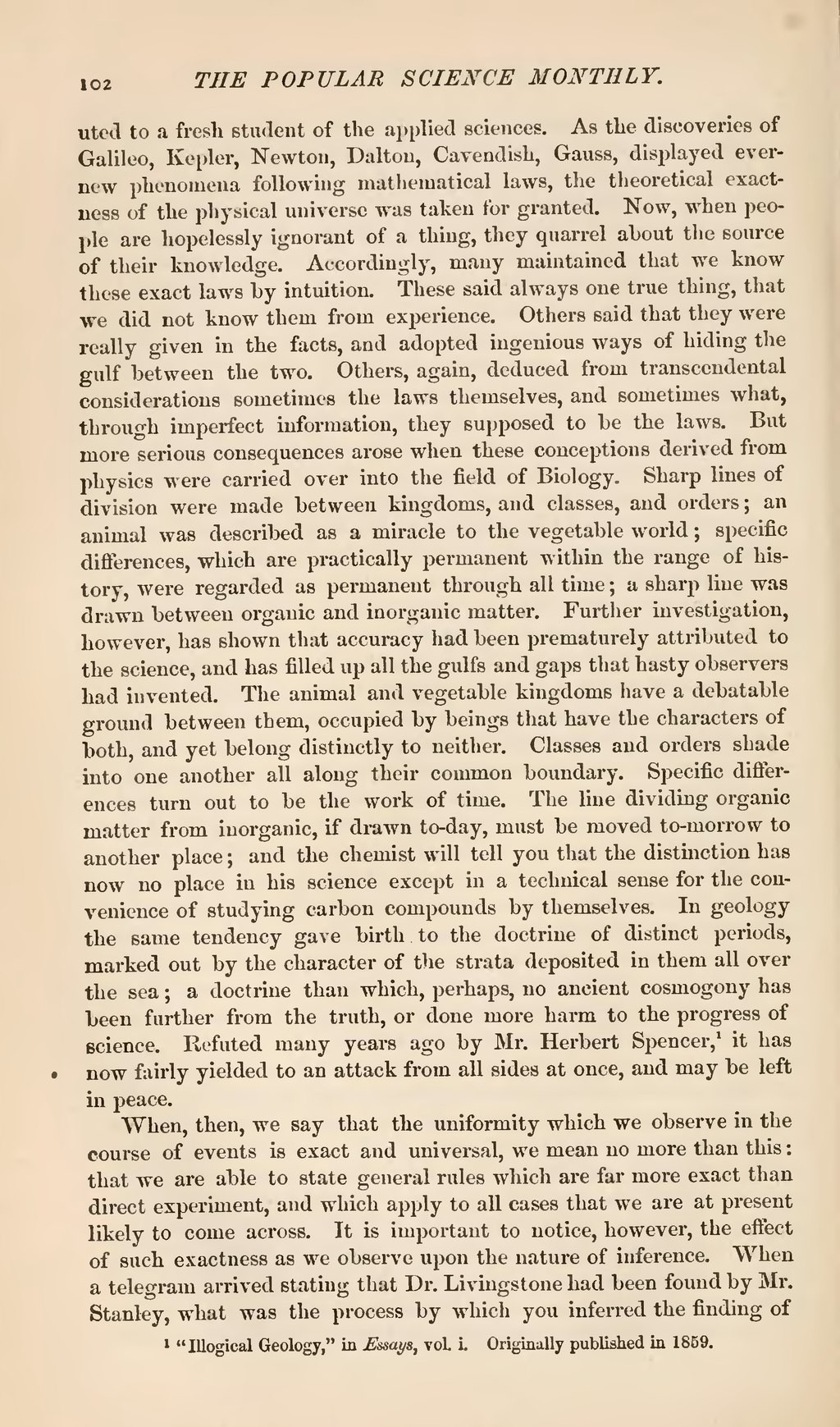uted to a fresh student of the applied sciences. As the discoveries of Galileo, Kepler, Newton, Dalton, Cavendish, Gauss, displayed ever-new phenomena following mathematical laws, the theoretical exactness of the physical universe was taken for granted. Now, when people are hopelessly ignorant of a thing, they quarrel about the source of their knowledge. Accordingly, many maintained that we know these exact laws by intuition. These said always one true thing, that we did not know them from experience. Others said that they were really given in the facts, and adopted ingenious ways of hiding the gulf between the two. Others, again, deduced from transcendental considerations sometimes the laws themselves, and sometimes what, through imperfect information, they supposed to be the laws. But more serious consequences arose when these conceptions derived from physics were carried over into the field of Biology. Sharp lines of division were made between kingdoms, and classes, and orders; an animal was described as a miracle to the vegetable world; specific differences, which are practically permanent within the range of history, were regarded as permanent through all time; a sharp line was drawn between organic and inorganic matter. Further investigation, however, has shown that accuracy had been prematurely attributed to the science, and has filled up all the gulfs and gaps that hasty observers had invented. The animal and vegetable kingdoms have a debatable ground between them, occupied by beings that have the characters of both, and yet belong distinctly to neither. Classes and orders shade into one another all along their common boundary. Specific differences turn out to be the work of time. The line dividing organic matter from inorganic, if drawn to-day, must be moved to-morrow to another place; and the chemist will tell you that the distinction has now no place in his science except in a technical sense for the convenience of studying carbon compounds by themselves. In geology the same tendency gave birth to the doctrine of distinct periods, marked out by the character of the strata deposited in them all over the sea; a doctrine than which, perhaps, no ancient cosmogony has been further from the truth, or done more harm to the progress of science. Refuted many years ago by Mr. Herbert Spencer,[1] it has now fairly yielded to an attack from all sides at once, and may be left in peace.
When, then, we say that the uniformity which we observe in the course of events is exact and universal, we mean no more than this: that we are able to state general rules which are far more exact than direct experiment, and which apply to all cases that we are at present likely to come across. It is important to notice, however, the effect of such exactness as we observe upon the nature of inference. When a telegram arrived stating that Dr. Livingstone had been found by Mr. Stanley, what was the process by which you inferred the finding of
- ↑ "Illogical Geology," in Essays, vol. i. Originally published in 1859.

